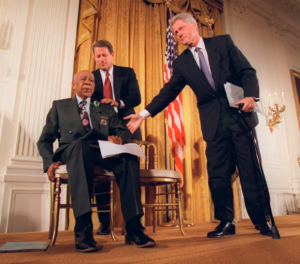“But the reality has become much more like the three B’s—plastic is buried, burned, or borne out to sea. The impacts on Americans’ health, particularly in communities of color and low-income communities, are serious,” said Senator Jeff Merkley (D-OR).
Story at a glance
The U.S. generates the most plastic waste in the world, producing 35.7 million tons in 2018.
A new poll found 55 percent of Americans agree that single-use plastics should be banned.
The federal government is trying to pass stricter regulations on plastic production and use, while the United Nations is also hoping to get international support to slow the rate of plastic pollution.
From grocery bags to water bottles and straws, plastics are an everyday staple in most Americans lives –but they carry devastating environmental impacts. While many Americans agree that single-use plastics should be banned, there’s still a long way to go for the U.S. to make headways in reducing plastic pollution.
The Environmental Protection Agency (EPA) says in 2018 the U.S. produced 35.7 million tons of plastics, with only 3 million of that recycled while nearly 27 million was sent to a landfill. The U.S. only accounts for 4.3 percent of Earth’s population, yet generates the most plastic waste in the world, exceeding that of all European nations combined.
That’s having dire consequences on the environment, as one study found that the U.S. plastics industry’s contribution to climate change is on course to surpass that of coal-fired power plants by 2030. The pandemic has exacerbated the problem, with researchers from China and California calculating that more than 25,000 tons of pandemic-associated plastic waste has entered the world’s oceans, ranging from COVID-19 test kits, surgical protective equipment to N95 masks and packaging.
Being thoughtful about where plastics are used is critical, as Paulita Bennett-Martin, a federal policy manager for Oceana, explained that plastics have a long-lasting environmental footprint.
“We don’t need [plastics] for a plastic straw that we use for maybe 30 minutes of our life that then goes on to live in landfills longer than we might. So that’s where we’re tipping the scale in the wrong direction,” Bennett-Martin told Changing America.
America is changing faster than ever!__Add Changing America to your Facebook or Twitter feed to stay on top of the news.__
Americans are catching on, as a new Ipsos poll found that 55 percent of people agreed that single-use plastics should be banned. A clear majority of consumers in every country around the globe, an average of 82 percent, also agreed that they prefer products that use as little plastic packaging as possible.
Another national poll conducted by Oceana found 81 percent of American voters are in favor of national, state and local policies to draw down on the use of single-use plastics.
States have tried to address plastic pollution within their local communities, imposing bans or fees on plastic shopping bags. According to the National Conference of State Legislatures (NCSL), in 2014, California became the first state to enact a statewide ban on single-use plastic bags at large retail stores while also imposing a 10-cent charge for recycled paper bags, reusable plastic bags and compostable bags at certain locations.
Hawaii, New York, Connecticut, Delaware, Maine, Oregon, Vermont and more have similar bans and fees on single-use plastic bags.
The federal government has also attempted to step in, with Sen. Jeff Merkley (D-OR) introducing legislation called Break Free From Pollution Act last year which would reduce and ban certain single-use plastic products that are not recyclable and establish minimum recycled content requirements for drink containers, packaging and food service products.
The act would also eliminate waste export loopholes by banning exports to countries who themselves re-export waste and require producers of plastic products to design, manage and finance waste and recycling programs.
Merkley argued that most Americans were taught the three R’s, which stand for reduce, reuse and recycle, when it comes to disposing of plastics but that simply isn’t accurate anymore.
“But the reality has become much more like the three B’s—plastic is buried, burned, or borne out to sea. The impacts on Americans’ health, particularly in communities of color and low-income communities, are serious. Plastic pollution is a full blown environmental and health crisis, and it’s time that we pass this legislation to get it under control,” said Merkley, in a statement.
The legislation has been endorsed by over 500 groups and has 14 co-sponsors, though it’s currently sitting with the Committee on Finance. It’s not clear when and if the legislation will move forward.
However, it will take more than the U.S. government to tackle plastic pollution, as Bennett-Martin also pointed out that there’s a lot of trade happening across the world and plastic that washes up on a beach in the U.S. may not be local, instead coming from someplace else around the globe.
“Plastics may be made in one place, and then shipped over here or there. Waste management systems are also not all at the same level, so we really need to be careful about working on things in a sort of silo,” said Bennett-Martin.
There are signs that nations around the world are trying to coalesce around the issue, with Secretary of State Antony Blinken announcing last year that the U.S. will back international talks to develop a treaty to curb plastic pollution, noting that human activity is estimated to add up to 14 million tons of plastic pollution to the ocean annually, some of which can take millions of years to fully degrade.
Starting on February 28, the United Nations Environmental Programme (UNEP) will hold its fifth session and plastic pollution is expected to be on the agenda.
“We need a system change that addresses the full life cycle of plastics, from the extraction of raw materials to alternatives to improved waste management. We need to be innovative and eliminate products that are unnecessary, avoidable or problematic,” said Inger Anderson, UNEP executive director, in an op-ed.
The silver lining on plastic pollution is that there are plenty of alternatives, like using glass instead of plastic for drinking, eating and packing food. Stainless steel, reusable silicone or plant-based materials are also plastic-free alternatives.
“We just need to take that leap, and get national policy on the book that addresses plastics comprehensively from beginning of life to end of life, and it will help all of our lives tremendously,” said Bennett-Martin.




